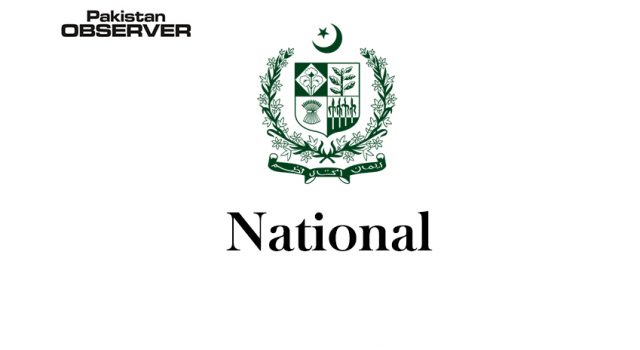Comment Muhammad Saleem
SINCE Pakistan shares a long border with Afghanistan, effects of instability invariably spill-over into Pakistan. During the 20-year-long war in Afghanistan, Pakistan has been the biggest victim.
It is in Pakistan’s interest to bring stability in Afghanistan as early as possible because only peace will bring economic and social benefits.
When terrorism increased in Afghanistan 20 years ago, entire Pakistan faced the brunt of terrorist attacks.
Terrorist incidents occurred on almost daily basis. Although the border regions were most affected, no corner of the country was spared. Ultimately, Pakistan lost over 80,000 lives as a direct effect of the war in Afghanistan.
Terrorist groups like TTP and JuA found refuge in Afghanistan’s lawlessness and started carrying out attacks against civilians and military personnel in Pakistan.
The worst incident was the attack on APS Peshawar that was carried out by Afghanistan-based TTP terrorists.
After the Afghan war of 1980s and then after the US invasion in 2001, Pakistan faced a massive influx of refugees from Afghanistan.
Despite economic problems of its own, Pakistan welcomed them, rehabilitated them and integrated them into its society.
The number of Afghans living in Pakistan has today risen to more than 4 million. If situation in Afghanistan deteriorates further, it will displace more people from the country. But today Pakistan is not in a position to absorb any more refugees.
As a result of terrorism and refugee influx, Pakistan’s economy faced severe setbacks with slowdown of commercial activity and depletion of revenues. Pakistan was pushed into the clutches of IMF loans. For returning these loans, Pakistan had to compromise on its developmental and social welfare projects.
Pakistan’s total losses due to the war in Afghanistan amount to over $150 billion which is almost half of its GDP volume. These losses are solely due to the spillover of instability in Afghanistan which compounded Pakistan’s existing challenges.
Pakistan’s Push for Geo-Economics and Regional Connectivity Pakistan has shifted its focus from geo-politics to geo-economics. For reaping the dividends of this policy, peace in Afghanistan is critical.
With stability in Afghanistan, Pakistan will be able to establish direct trade links with Central Asian Republics and many stalled projects will revive.
China, Pakistan and Afghanistan all have already agreed to extend BRI / CPEC into Afghanistan.
Once peace returns to Afghanistan, this mega-project will accelerate the pace of the war-torn country’s development.
The ultimate economic beneficiary will be Pakistan as it will be connected with more markets and more suppliers. Poverty and Instability Are Breeding Grounds of Extremism.
It is an established fact that poverty and instability are breeding grounds of extremism. If such conditions continue in Afghanistan, more extremist organizations will surface and not only Afghanistan but also Pakistan will see an upsurge in terrorism.
More concerning is the possible revival of terrorist proxies that operate from Afghanistan and target Pakistan. Pakistan has decisively defeated TTP and JuA and cannot afford their resuscitation.
Pakistan’s Tangible Contributions to Peace in Afghanistan Pakistan is performing the pivotal role of being the facilitator of Afghan peace process because it is in Pakistan’s economic and regional interest.
Pakistan has thus made tangible contributions to the peace process, which include:- Signing of US-Taliban peace agreement.
Initiation of intra-Afghan dialogue. Adoption of rules of procedure for Afghan talks. Establishment of the Afghan-Pakistan Action Plan for Peace and Solidarity (APAPPS) to coordinate peace building activities in Afghanistan.
Bottomline Being a victim of the instability in Afghanistan, it is Pakistan’s national interest that peace is established in Afghanistan.
Only then the region can return to a normalcy that is conducive to economic development and social uplift.
Pakistan’s desire of uplifting the region through geo-economics and regional connectivity cannot be fulfilled if there is instability in Afghanistan.
It is thus essential to establish peace in Afghanistan since it directly translates into peace in Pakistan.










